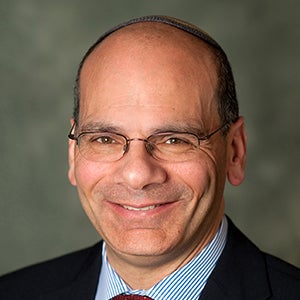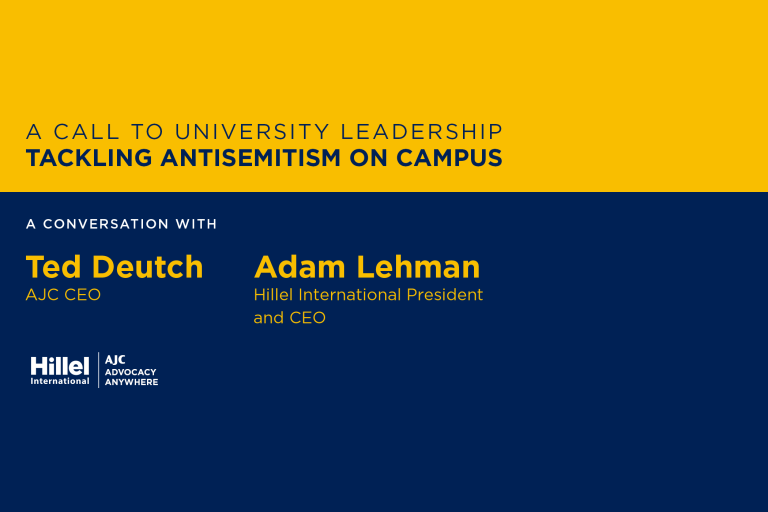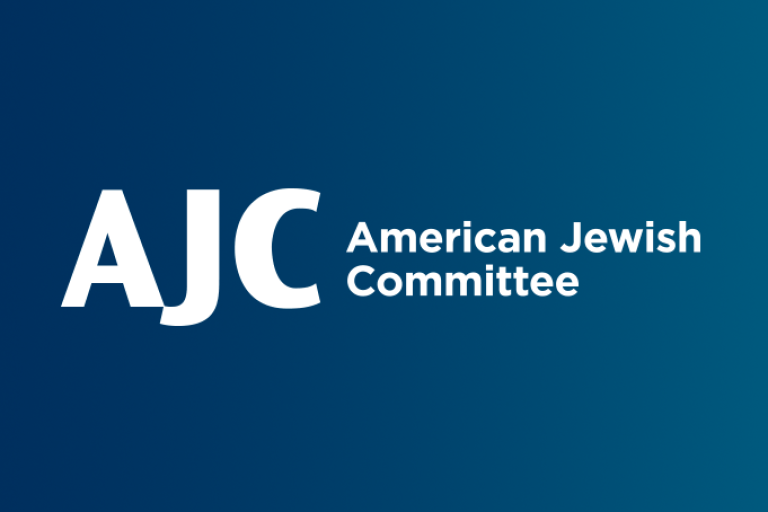October 7, 2019 — New York
This piece originally appeared in RNS.
American Jews have filled their synagogues this High Holiday season with a palpable realization that something has changed since they gathered a year ago.
On their minds were the horrifying, cold-blooded murders of 12 fellow Jews on Shabbat mornings in Pittsburgh and Poway in the past year. Also on their minds were the more recent physical attacks on Jews in Brooklyn, home to more than a half million Jews, and, most recently, an assailant with a knife who tried to enter a Berlin synagogue but was disarmed by alert security guards.
The perpetrators of these crimes and their motives may differ — there are multiple sources of the current rise of antisemitism, including far left, far right, and extremism in the name of Islam — but a fear of further violence has understandably reached a fever pitch in the American Jewish community.
The spike in violence is a permanent stain on the American Jewish experience, long heralded as the best of the Jewish Diaspora experiences. Jews are regarded more warmly in the United States than any other faith adherents, according to a recent survey by the Pew Research Center, and the restrictive covenants, glass ceilings and quotas that were once barriers to Jewish advancement have receded or disappeared.
But this positive narrative coexists with a new reality: The marginalization of antisemitism to the political and social fringe has ebbed in force, and a dormant and violent beast, hugely boosted by the power of social media, has awakened. It is up to American Jews and their fellow citizens to keep us from the approaching tipping point at which antisemitism is renormalized.
There is a lot at stake for all of us. Antisemitism endangers not only Jews but the societies in which they live. Thankfully, this American society is not prepared to be passive in the face of antisemitism and other forms of hate.
What can we do now?
Last year, within hours of the massacre of 11 worshipers from three congregations inside the Tree of Life building, the American Jewish Committee established on social media a rallying cry, #ShowUpForShabbat, that moved untold numbers of Jews and others of all and no faiths to attend synagogue services across the planet on the following weekend.
This “We are all Jews” response reaffirmed that this moment is not remotely akin to the nadir of civilization reached in Germany in the 1930s, when antisemitism, built upon centuries of religiously motivated anti-Judaism, was mandated by the government and encouraged by civil society.
So let’s make #ShowUpForShabbat a tradition. Jews who may not be weekly attendees should fill the pews on Oct. 25-26, to commemorate the Pittsburgh synagogue shooting and the global response of solidarity. Synagogues should open their doors to their neighbors that Friday evening and Saturday morning and allow the goodness of the overwhelming majority to prevail over the evil of the few.
Individual Jews should invite their non-Jewish friends to join them. Faith groups should encourage their adherents to participate. In addition to showing solidarity, #ShowUpForShabbat can be educational, demystifying Judaism and the synagogue and contributing to a more literate society in which the faith of the other is better understood.
Second, although antisemitism is a primary existential threat to the Jewish people, hate of the other in all its manifestations must be eradicated.
Hatred of Jews may not always be first on the list of hate priorities, but it is always in the inventory. The white supremacist terrorists of Pittsburgh and Poway justified their murder of Jews by linking antisemitism with other forms of hate, implicating Jews as those who allegedly facilitate the nonwhite immigrant “invasion” of America.
Although the recent surge in violence against Jews from the far right requires increasing attention, we must not relent in our commitment to combat antisemitism from all its sources. We must also redouble our efforts in coalition building, including but not limited to Muslim-Jewish, Latino-Jewish and black-Jewish initiatives.
Third, our government must have the tools needed to defeat hate when it erupts into violence. Preemptive strategies have been enhanced with the establishment of New York City’s Office for the Prevention of Hate Crimes, which was sorely needed after a 41% increase in hate crimes in the city during the past year. Other cities of concern should follow suit.
The AJC and the Islamic Society of North America, which convened three years ago the Muslim-Jewish Advisory Council, are also calling upon all Americans to advocate for the NO HATE Act, which will improve the FBI’s ability to track and respond to hate crimes.
Finally, we must defeat nativist and anti-immigrant sentiment in the U.S. and the political opportunism that manipulates this issue for electoral gain. America as a nation of immigrants is not just a slogan. It is a historical reality and central to America’s success as a nation inspired by “E Pluribus Unum” (Out of Many, One).
Nativism cyclically rears its head in American history with deadly consequences, as in the El Paso, Texas, massacre. For Jews, American immigrant history has had its highs, notably millions of Jews fleeing Eastern Europe from 1881 to 1914, including my grandparents, and its lows, as when the government sent the 254 passengers of the ship St. Louis back to Europe, where they were murdered in the Holocaust.
America can reform its defunct immigration system while securing its borders and sustaining its strong tradition of welcoming refugees.
The Ashkenazi High Holy Day liturgy asks, “Who shall live and who shall die?” We cannot avoid reflecting on this question as we sit in a synagogue and contemplate the events of the last year. The Sephardic liturgy asserts, “End a year and its curses. … Begin a year and its blessings.” May it be so. We can make the hope for blessings a reality.
Rabbi Noam E. Marans is the American Jewish Committee’s director of interreligious and intergroup relations.



